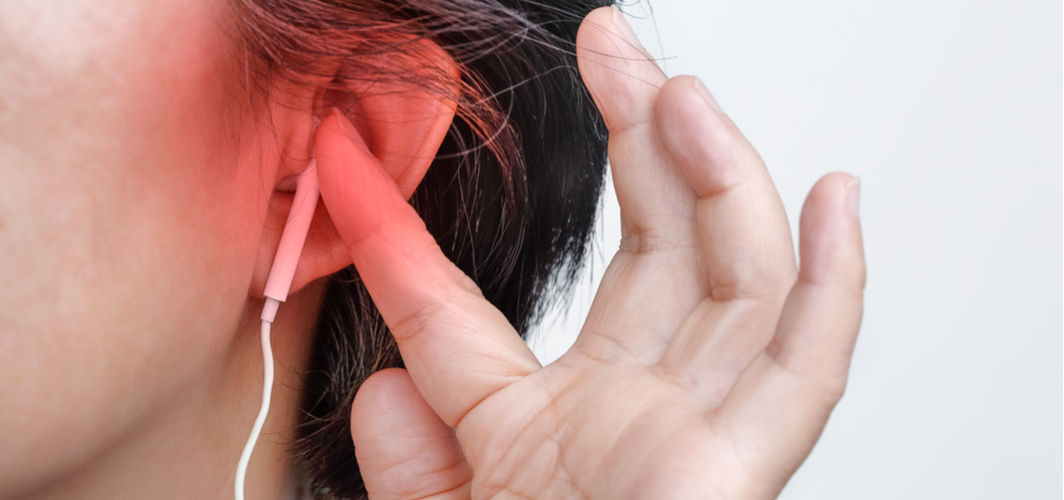General Health
How to Keep Ears Healthy and Prevent Infections
4 min read
By Apollo 24/7, Published on - 22 October 2021, Updated on - 18 October 2022
Share this article
0
11 likes

The human ear includes the outer, middle, and inner ear. The outer ear consists of the outer ear flap and the ear canal. The middle ear is the space between the eardrum (tympanic membrane) and the inner ear, which includes three tiny bones that amplify the sound. These sound vibrations are then translated into electrical signals by a snail-shaped labyrinth present in the inner ear and sent to the brain.
Any part of the ear can get infected by microorganisms but the majority of infections occur in the middle ear, also known as otitis media. Undiagnosed and untreated ear infections can result in serious complications and hearing loss. According to a study published in the Journal of Family Medicine and Primary Care in 2018, 6.3% of the Indian population suffers from hearing impairment, making it a matter of serious concern.
Types of ear infections
There are different types of ear infections, some of the common ones include:
- Otitis externa: Infection of the outer ear.
- Otitis media: Infection of the middle ear.
- Infectious myringitis: Inflammation of the eardrum.
- Acute mastoiditis: Infection of the mastoid (a bone present behind the ear).
- Vestibular neuronitis: Inflammation of the vestibular nerve, which is located in the inner ear and helps in maintaining the balance of the body.
- Herpes zoster of the ear: Infection of the cochlear nerve, which carries electrical impulses from the ear to the brain.
What are the signs of an ear infection?
Individuals with an ear infection may experience symptoms that include:
- Pain in the ear
- Yellow, white or brown coloured discharge from the ear
- Itching in and around the ear
- A feeling of pressure inside the ear
- Difficulty in hearing
- Blisters or scales in and around the ear
- Fever
- A feeling of being sick
- Inability to sleep
- Persistent tiredness
Children and babies with an ear infection may become restless, irritable, and refuse to eat. They may experience a loss of balance (vertigo) while walking and standing.
What causes ear infections?
Ear infections may be caused by:
- Infection-causing bacteria such as Streptococcus pneumoniae and Haemophilus influenzae
- Viruses that cause common cold and flu
- Blocking of the Eustachian tubes (canals that connect the middle ear to the nose)
- Sudden change in air pressure
- Scratching the ear canal while cleaning with sharp instruments
- Water or bathing products in the ear
- Smoking
How is an ear infection treated?
Most ear infections resolve on their own within 3 days. However, sometimes the symptoms may last up to a week. The treatment of the ear infection depends on the underlying cause. The treatment includes:
- Medications: Oral antibiotics and ear drops containing antibiotics and steroids (if the infection is caused due to bacteria) may be prescribed to treat ear infections. Over-the-counter available pain killer medications such as acetaminophen and ibuprofen may be given to relieve the associated pain.
- Home care: Using a warm compress on the outside of the ear can help relieve pain. People with an ear infection are advised to drink water and other fluids to stay hydrated.
- Surgery: If the infection is chronic and does not resolve using medications, a procedure known as myringotomy may be recommended. In this procedure, a tiny cut is made in the eardrum and a small metal or plastic tube is placed inside it to allow the air to pass and drain the fluid (pus, water, blood).
How to maintain ear health
Measures that one can adopt to maintain ear health while lowering the risk of ear infections include:
- Not keeping the television, radio or music on too loud for long hours.
- Avoiding the use of earphones for a long period at one go, especially while sleeping.
- Using softer earphone buds to prevent cuts or scratches, which can otherwise result in outer ear infections.
- Cleaning the earphones regularly as dust can attract microorganisms, resulting in infection.
- Using ear protection plugs while visiting a place with a noisy environment, such as a garage workshop or a building site.
- Avoiding the use of pointy objects, cotton buds, swabs, or tissues to clean the ear canal. One should visit a doctor frequently to get the clogged ear wax cleaned.
- Preventing the entry of soap or shampoo into the ear while bathing.
- Drying the ear thoroughly immediately after swimming.
- Quitting smoking and staying away from second-hand smoke.
- Getting the flu and pneumococcal vaccine every year as Streptococcus pneumonia is responsible for the majority of middle ear infections.
Conclusion
Ear infections can occur to anyone but children are more commonly affected by the condition. The common signs of ear infections include pain, itching and heaviness in the ear, hearing impairment along with dizziness, loss of appetite, and vertigo. Ear infections cannot be prevented completely but keeping the ear dry, avoiding smoke, getting vaccinated against infection-causing bacteria and viruses, and consulting the ENT specialist frequently can help reduce the risk of infections.
General Health
Leave Comment
Recommended for you

General Health
Should You Detox Your Body? Busting 5 Myths Associated With Detoxing
In recent times, several body detox programmes have gained popularity by claiming that they can help cleanse your body and improve your overall health. But are these claims true? Read on to know more.

General Health
Is 7000 Daily Steps the Magic Number for Better Health?
A recent study conducted by scientists found that walking a certain number of steps daily can reduce the risk of premature death.
.jpg?tr=q-80)
General Health
MRI: What It Is, Purpose, Procedure and Results
Magnetic resonance imaging is a non-invasive medical imaging technique that uses magnetic fields and radio waves to produce detailed images of organs in the body without using radiation. It is commonly used for diagnosing and monitoring various medical conditions. The article explains the procedure and its significance for different medical evaluations.
Subscribe
Sign up for our free Health Library Daily Newsletter
Get doctor-approved health tips, news, and more.
Visual Stories

Plant-based Foods That Are a Great Source of Iron
Tap to continue exploring
Recommended for you

General Health
Should You Detox Your Body? Busting 5 Myths Associated With Detoxing
In recent times, several body detox programmes have gained popularity by claiming that they can help cleanse your body and improve your overall health. But are these claims true? Read on to know more.

General Health
Is 7000 Daily Steps the Magic Number for Better Health?
A recent study conducted by scientists found that walking a certain number of steps daily can reduce the risk of premature death.
.jpg?tr=q-80)
General Health
MRI: What It Is, Purpose, Procedure and Results
Magnetic resonance imaging is a non-invasive medical imaging technique that uses magnetic fields and radio waves to produce detailed images of organs in the body without using radiation. It is commonly used for diagnosing and monitoring various medical conditions. The article explains the procedure and its significance for different medical evaluations.